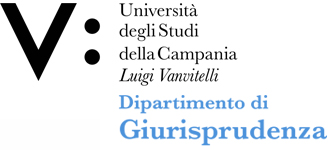Giovanna PETRILLO
Insegnamento di PRINCIPI DI DIRITTO TRIBUTARIO E POTERI ISPETTIVI
Corso di laurea in SCIENZE DEI SERVIZI GIURIDICI
SSD: IUS/12
CFU: 9,00
ORE PER UNITÀ DIDATTICA: 54,00
Periodo di Erogazione: Primo Semestre
Italiano
| Lingua di insegnamento | Italiano |
| Contenuti | Dopo una disamina delle fonti, dei principi generali del diritto tributario e della struttura stessa della norma tributaria, le lezioni si concentreranno sulla funzione ispettiva. L’ analisi delle modalità concernenti l’esecuzione delle verifiche e dei controlli fiscali volti al contrasto dell’evasione, dell’elusione e delle frodi fiscali, sarà condotta nell’ottica della valorizzazione dei principi della tax compliance in una prospettiva in cui la funzione ispettiva è sempre considerata unitamente, in ossequio al fondamentale principio di proporzionalità, ai diritti del contribuente . |
| Testi di riferimento | 1) Fondamenti di diritto tributario, Seconda Edizione, Padova, 2022, relativamente ai Cap. I, II., III, VII, VIII, IX. |
| Obiettivi formativi | L’insegnamento è volto a fornire agli studenti la conoscenza dei principi e degli elementi fondamentali del Diritto tributario, funzionali allo studio della funzione ispettiva. |
| Prerequisiti | Propedeuticità: Istituzioni di diritto pubblico |
| Metodologie didattiche | Lezioni frontali per 54 ore, incontri di approfondimento e dibattiti sui principali temi del programma |
| Metodi di valutazione | Colloquio orale consistente in almeno 4 domande . La valutazione in trentesimi terrà conto dell’approfondimento delle tematiche oggetto di studio, della capacità critica del candidato, della abilità a realizzare gli indispensabili collegamenti fra i diversi istituti oggetto di esame anche in ambito interdisciplinare. I differenti livelli di preparazione giustificheranno una diversa valutazione: eccellente (30 e lode), ottima (28/30), buona (25/27), discreta (21/24), sufficiente (18/20) |
| Altre informazioni | Si consiglia la consultazione di un codice aggiornato contenente le leggi tributarie fondamentali. |
| Programma del corso | Le fonti e l’efficacia delle norme tributarie. I principi generali di diritto tributario e i principi europei. Il tributo e le prestazioni patrimoniali imposte. La norma tributaria: struttura ed interpretazione. La collaborazione fra fisco e contribuente e la tax compliance. Modalità esecutive delle verifiche fiscali. Le verifiche fiscali e le indagini penali. Il fisco e il mondo del web. Principio di proporzionalità e verifiche fiscali. L'accertamento dei tributi evasi, la riscossione e il rimborso. Le sanzioni tributarie. |
English
| Teaching language | Italian |
| Contents | After an examination of the sources, general principles of tax law and the structure of tax law itself, the lectures will focus on the inspection function. The 'analysis of the modalities concerning the execution of tax audits and controls aimed at combating tax evasion, avoidance and fraud, will be conducted with a view to enhancing the principles of tax compliance from a perspective in which the inspection function is always considered together, in deference to the fundamental principle of proportionality, with the rights of the taxpayer . |
| Textbook and course materials | 1) Fondamenti di diritto tributario, Seconda Edizione, Padova, 2022, relativamente ai Cap. I, II., III, VII, VIII, IX. |
| Course objectives | The teaching is aimed at providing students with knowledge of the principles and fundamental elements of Tax Law, functional to the study of the inspection function. |
| Prerequisites | Institutions of Public Law |
| Teaching methods | Lectures for 54 hours, in-depth meetings and discussions on the main themes of the program |
| Evaluation methods | Oral interview consisting of at least 4 questions . The evaluation in thirtieths will take into account the candidate's in-depth study of the topics under study, critical ability, and ability to make the indispensable connections between the different institutes under examination, also in an interdisciplinary context. The different levels of preparation will justify different evaluation: excellent (30 cum laude), excellent (28/30), good (25/27), fair (21/24), sufficient (18/20). |
| Other information | Consultation of an up-to-date code containing basic tax laws is recommended |
| Course Syllabus | The sources and effectiveness of tax rules. General principles of tax law and European principles. The tax and the property benefits imposed. The tax rule: structure and interpretation. Cooperation between the tax collector and taxpayer and tax compliance. Enforcement modalities of tax audits. Tax audits and criminal investigations. The IRS and the world of the web. Principle of proportionality and tax audits. The assessment of evaded taxes, collection and refund. Tax penalties. |








